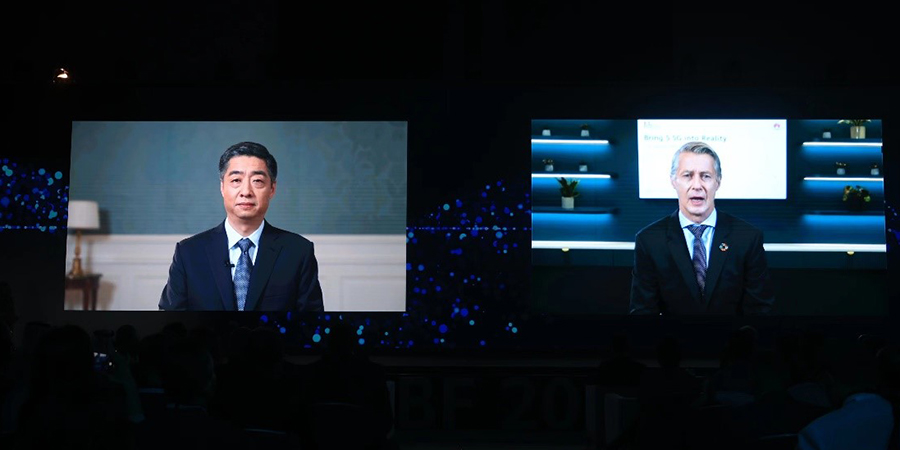Huawei's annual Global Mobile Broadband Forum (MBBF) kicked off in Dubai today. The event began with a livestreamed discussion between Huawei's Rotating Chairman Ken Hu, and the Director General of GSMA, Mats Granryd, about the current state of 5G development and future projections.
satellite
“Technology is changing so fast, and new demands are evolving every day,” said Hu. “So our networks need to keep evolving too. Our industry as a whole needs to get ready for the future and maximize the value of investments in 5G – and that’s why we’re working so hard on 5G-Advanced.”
5G has progressed by leaps and bounds
Both Hu and Granryd agreed that 5G has seen remarkable progress in network deployment, adoption, consumer services, and industry applications. To date, more than 260 5G networks have been deployed worldwide, covering nearly half of the world's population. 5G is the fastest growing mobile technology ever, having reached one billion connections only three years after its launch. By comparison, it took 4G six years to reach the same milestone.
According to Hu, 5G has become a new growth engine for mobile operators in the consumer market. For leading mobile operators around the world, 5G now accounts for the majority of network traffic. In particular, video-based applications are changing consumption habits, driving a three- to five-fold increase in network traffic and 10%–25% average increase in ARPU.
5G has also helped mobile communications networks expand into the vertical industry market – one of its biggest differences with 4G. Currently, there are more than 50,000 industrial 5G applications worldwide, and more than 10 million 5G connections in industrial settings.
"Over the past four years, we've identified key scenarios for industrial applications, like remote control, video backhaul, machine vision, and positioning, where we can maximize the value of 5G," Hu continued. "We have also identified industries like mining, ports, and manufacturing where we can scale up 5G capabilities."
Granryd remarked, "5G is driving digital transformation across industries and opening up enormous opportunities. In 2030, 5G will add US$1 trillion to global economy, with benefits spreading across all industries."
New capabilities, models, and ecosystems: Unleashing the full potential of 5G
Speaking on next steps for 5G, Hu mentioned several key consumer-facing initiatives that can help mobile operators achieve ongoing business success. These include continuously expanding network coverage, enhancing user experience, and exploring more flexible pricing models.
As for the B2B market, Hu suggested that the industry should leverage proven 5G applications to drive 5G adoption at scale across more industries. Throughout this process, mobile operators can better position themselves to seize new opportunities in industry digitalization by strengthening their capabilities in cloud, industrial application development, and end-to-end system integration.
“Looking forward, we have lots of work to do,” said Hu. “We need to enhance our capabilities, evolve the technology, create better user experience, scale up in industry, and maximize the value of our investment on 5G.”
To help further enrich the 5G application ecosystem, GSMA has proposed the Open Gateway initiative as a way to support cross-industry innovation. Open Gateway is a framework of common APIs that will bring universal access to operator network capabilities, allowing developers and cloud service providers to improve and create new digital services.
"Now we have roughly 240 mobile operators signed up, representing more than 62% of the world's mobile subscribers,” said Granryd. “Open Gateway is a way for developers, hyperscalers, and others to more effectively use the capabilities of networks, and create common APIs that we can share across the whole operator community. It’s like what we did with roaming back in the 2G era, but for APIs. It’s very, very exciting.”
“We need to activate the ecosystem,” agreed Hu. “Particularly application developers. Open Gateway is a great way to help developers make full use of networks, creating greater development opportunities for 5G in both the consumer and industry digitalization markets.”






